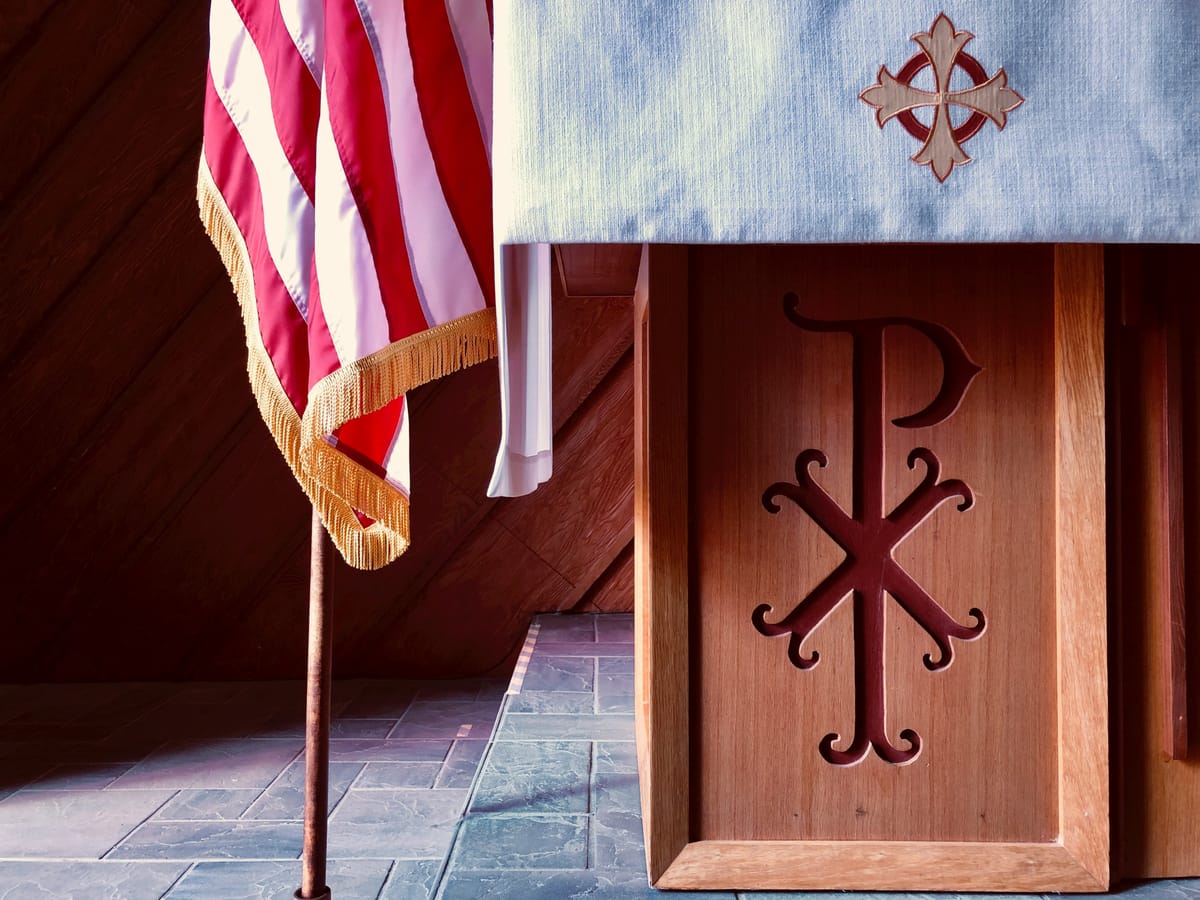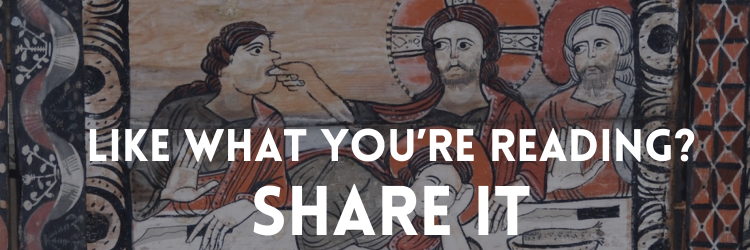Christian Nationalism and what you can do about it
Do you want to live in Biden's America or Trump's America?

Dear Friends:
Before we get into the meat of this week's letter, a program note of sorts. I will be preaching for at least the next four or five weeks, first at my home church in Fond du Lac. Then I'll be filling the pulpit for a colleague who was in a serious automobile accident. A vast cornucopia of sermons is coming your way!
Still, I can't help writing about politics. So I decided that meant that you would get a double-dose of the newsletter for the next few weeks. And when I thought about it some more, I decided, ehhhh why not make that the norm?
And so it shall be.
I can't promise a sermon every week, but you'll at least get a religious-coded message each Sunday. You'll also get an essay on politics or personal life. I'd like to arrange the schedule so that both of those don't come the same day. But a lot depends on how much writing time I have, and when. If I get enough subscribers to make it worthwhile, I'll split things into different newsletters. That will give people more control over what they're reading. That's a ways off, though, so bear with me in the meantime.
Christian Nationalists
You may have seen earlier this week that I published a piece on Christian nationalism at Religion Dispatches.1 More will be on the way — it's a hot topic these days.
Because I was mostly reporting on a poll, I didn't include much analysis in the piece. The upshot is that while Christian nationalists are a sizable minority, one to take seriously as a threat to American democracy. But they are just that: a minority. There is no state in which they rise above 50% of the population. In swing states, the proportion is much lower, ranging from 20% in Nevada to 33% in Georgia.
That suggests two things to me. First, an election organized around opposition to the Christian nationalist agenda has a good shot at success in the swing states.
Second, support for Christian nationalism is relatively low in some red states like Texas and Florida. Because of that, I believe there's room to grow an electoral coalition against some of those states' more extreme measures. We will see if I am right or wrong about that.

How to build an election around opposition to Christian nationalism
Democrats — because let's face it, that's who represents those opposed to Christian nationalism — have a strong and a very strong path forward.
The strong path is one that a lot of people have been kicking around: Tell voters "The Supreme Court is why we can't have nice things." Alexandria Ocasio-Cortez sums up the strategy well:
We need to go after the Supreme Court ... And through the Supreme Court, we explore the entire network of issues that are most important to everyday Americans: The influence of dark money in creating a government that works against the American people. The erosion of abortion rights and reproductive freedom in the United States. The actual institution of the Supreme Court itself, and the complete lack of ethical or legal standards that they are subject to, and shedding light on it. [Emphasis mine]
It's not just abortion. As we saw with IVF in Alabama, there are any number of reproductive freedoms the Religious Right would like to do away with, including birth control. There are also noises on the right about undoing same-sex marriage, separation of church and state in education, even no-fault divorce. The Roberts Court made all of that possible and much more, as Ocasio-Cortez points out.
But the message "We have to take control of the Supreme Court because Christian nationalists want to take away women's control over their bodies!" is a much more direct, more effective message than "The Supreme Court wants to dismantle the regulatory state!" Combining that message with one about the corruption and fundamental illegitimacy of the Court could be quite powerful.2
What you can do
What if I were to tell you that another, even more powerful strategy exists? It does, and it's called "get the ordinary people off the sidelines." Giving money is always helpful, of course. So is phone-banking or door-knocking or even just reminding the people around you to vote.3
I really like Simon Rosenberg's advice about this: do more, worry less. The majority coalition opposed to Christian nationalism is powerful, if it chooses to act. It's two-thirds of American voters, after all.
But what if that two-thirds despairs? What if it decides that Biden is too old or too supportive of Israel's war on Gaza? It will sleep-walk the nation straight into an authoritarian right-wing Christian regime, that's what.
As Michael Podhorzer puts it, "Democracy is not a spectator sport." He explains at some length that this election is not about what Biden is doing. It's not even about what Trump is doing, or has done. It's about who we, the American people want to be.
To that end, Podhorzer suggests some ways not to talk about the election:
- Ad hominem attacks on Trump, and I would add his supporters or Republican bystanders. It might feel good to get a sick burn in on Facebook. But as Podhorzer says, all it does is invite counter-attacks on Biden. Worse, it makes average people more cynical about politics.
- Defend Democracy! Yes, it's true that if Trump is elected, we can expect a lot of democratic back-sliding. At the same time, "democracy" is a broad category that doesn't mean very much to a lot of people. Instead, use Alexandria Ocasio-Cortez's strategy: Explain how voting for democracy enables them to get the nice things they want.
- Reject extremism! Again, this just invites tit-for-tat arguments that no one ever wins. Better to explain in less inflammatory ways exactly what a Christian nationalist victory in the fall would mean.
Again, as Podhorzer says, many of the "guardrails" in civil society that Americans rely on to protect us from anti-democratic forces are compromised or weakened. It's up to the citizens to protect their own democracy this time around.
The first step is to let go of the idea that we're choosing a leader, and start focusing on what kind of nation we want to be. So, not: Do you want Biden or Trump? but, Do you want to live in Biden's America or Trump's America? Or even better: Do you want to live in a free, equal and pluralistic America? Or would you rather live in one governed by and for the benefit of White conservative Christians, and only White conservative Christians?
I have faith in you, and faith in your faith (or lack thereof), to make the right call, to do what it takes to make it happen. We can be better people and a better nation.
Endnotes
1You might wonder why you hear about "White Christian nationalists" at some times, and just "Christian nationalists" at others. The PRRI poll I reported on looked at all varieties of Christian nationalists, including Blacks and Hispanics. But Black Christian nationalists vote Democratic, and there aren't enough Hispanic Christian nationalists to form a powerful political bloc of their own. So for electoral purposes, "White Christian nationalists" and "Christian nationalists" are functionally the same: the evangelical base of the Republican party.
2There's also a great possibility in the message that Trump is trying to get off the hook for his many crimes by appealing to a court he chose. I think the example of voters in Wisconsin indicates that "un-rig the Court" can be a successful turnout strategy.
3Do me a favor and arm-twist your nearest 18-25 year old to get them to the voting booth.